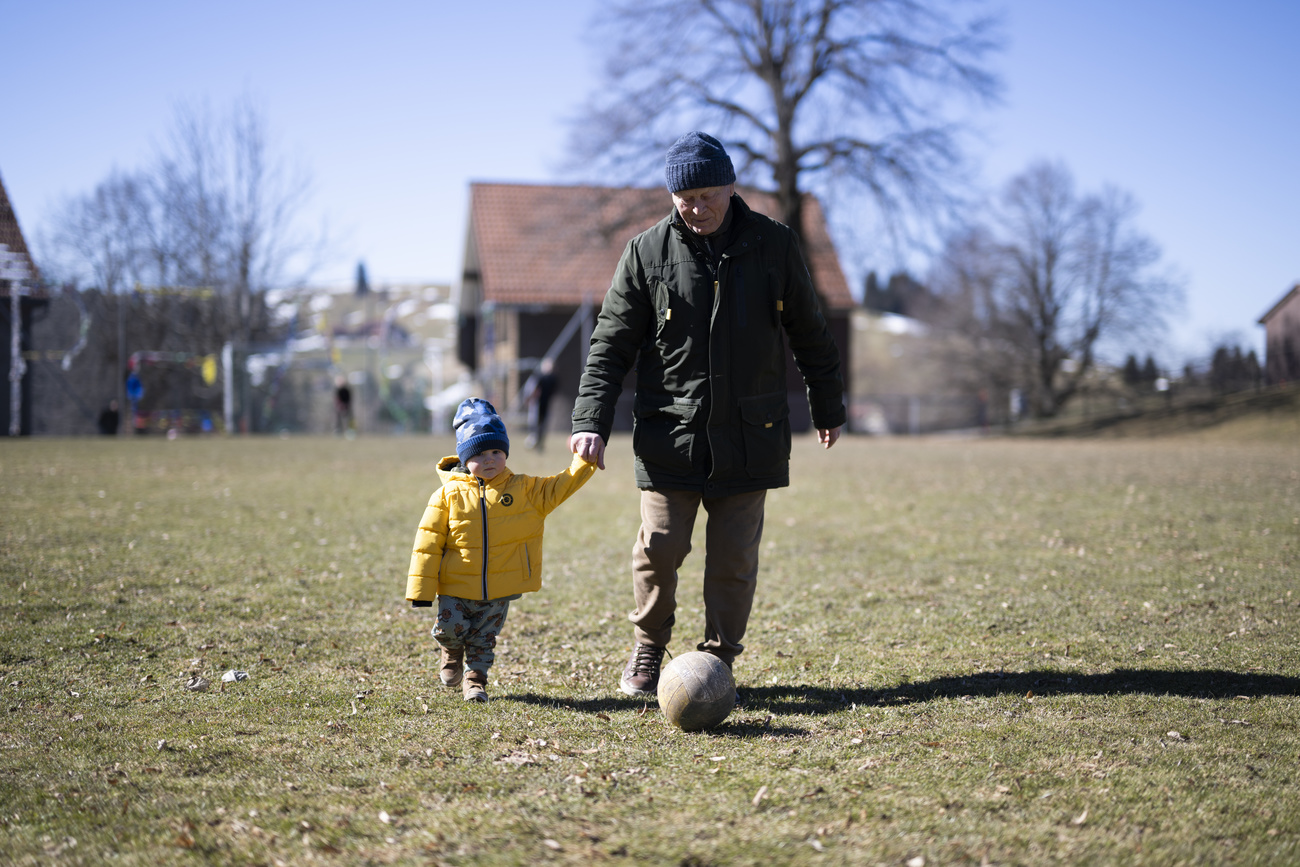
Switzerland will not cap number of Ukrainian refugees, says minister

Switzerland is not setting a maximum limit on how many Ukrainian refugees it accepts, says the Swiss justice minister.
Karin Keller-Sutter toldExternal link Swiss public television, RTS, on Sunday that no cap had been set on the number of people who would be allowed into the country, fleeing the war in Ukraine.
“I don’t see how Switzerland could turn away women and children at the border,” she said.
So far, 28,000 people who have fled the war have been registered in Switzerland as refugees, the State Secretariat for Migration (SEM) reported on Saturday. Of these, 23,300 have been granted S permits. This special status gives refugees the right to remain in Switzerland for a year and to work.
Some 7.3 million people have now fled their homes in Ukraine due to the war, according to the United Nations refugee agency UNHCR, and 4.4 million of these have fled to other countries. Figures have continued to rise since Russia invaded its neighbour on February 24.
The Swiss government had previously said that 60,000 refugees from Ukraine could arrive. But cantonal authorities tasked with dealing with the new arrivals expect as many as 300,000 refugees to reach Switzerland by the end of the year.
‘Very complex’
Keller-Sutter nonetheless accepts that the number of new arrivals is posing major challenges for Switzerland and that welcoming so many people is “very complex”. The authorities have been under pressure to register, advise and house between 700 and 1,400 refugees arriving in Switzerland every day since the middle of March.
Keller-Sutter said last week that Switzerland needed “quick and unbureaucratic solutions” to cope with the influx. In her interview on Sunday, she insisted that cantons must work together and avoid criticising each other publicly.
“It does not make a good impression and it does not interest the public, who expect us to do our job in a composed manner,” she declared.
The government is currently consulting on a grant to cantons to help fund the integration of refugees. Last week the government also gave the green light for the civil protection organisation to provide additional assistance. Staff will help set up emergency shelters and provide support to refugees.
Keller-Sutter is due to meet other justice ministers from German-speaking countries on Monday in St Gallen in eastern Switzerland to discuss the war in Ukraine.

More
Switzerland triggers unprecedented special status for Ukrainian refugees

In compliance with the JTI standards
More: SWI swissinfo.ch certified by the Journalism Trust Initiative

























You can find an overview of ongoing debates with our journalists here . Please join us!
If you want to start a conversation about a topic raised in this article or want to report factual errors, email us at english@swissinfo.ch.